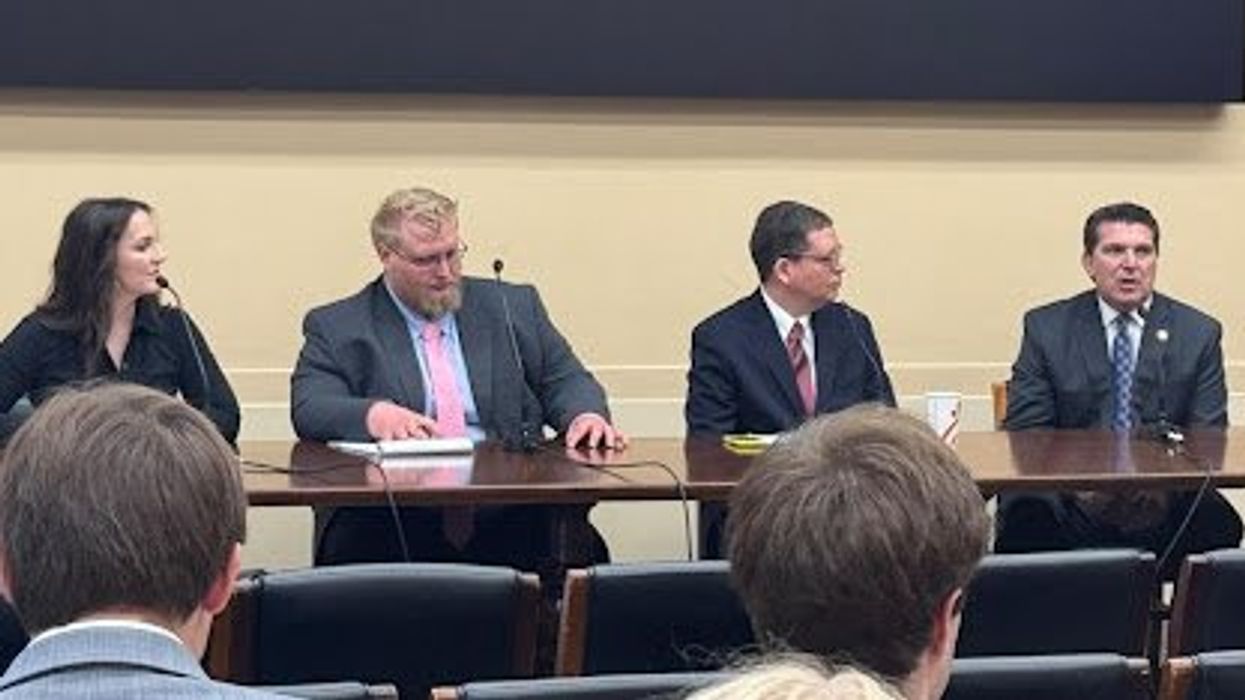WASHINGTON —- As House Republicans voted Thursday to pass a 10-year moratorium on AI regulation by states, Rep. Jay Obernolte, R-CA, and AI experts said the measure would be necessary to ensure US dominance in the industry.
“We want to make sure that AI continues to be led by the United States of America, and we want to make sure that our economy and our society realizes the potential benefits of AI deployment,” Obernolte said.
As Artificial Intelligence has the potential to revolutionize many aspects of society, federal and state leaders clash over the states’ ability to regulate it on their own.
According to data from the National Conference of State Legislators, legislation to regulate AI had already been introduced in 48 states. In 2024 alone, nearly 700 such bills were introduced, and 75 were adopted or enacted.
40 state attorneys general have co-signed a letter to Congress, urging them not to pass this measure.
“This bill does not propose any regulatory scheme to replace or supplement the laws enacted or currently under consideration by the states, leaving Americans entirely unprotected from the potential harms of AI,” the letter states.
However, Obernolte said leaving AI regulation up to the individual states could create a series of complex and confusing rules that make it difficult for innovators to operate.
“We risk creating this very balkanized regulatory landscape of potentially 50 different state regulations going in 50 different, and in some cases wildly different directions,” Obernolte said during an event Thursday on Capitol Hill. “It would be a barrier to entry for everybody.”
The moratorium bill now awaits a vote in the Senate. It faces widespread opposition, mostly from Democrats but also some Republicans, who argue that it leaves Americans without safeguards from AI.
“We need those protections, and until we pass something that is federally preemptive, we can't call for a moratorium on those things,” said Sen. Marsha Blackburn, R-TN, at a Senate hearing on Wednesday.
However, Obernolte addressed some of these concerns by pointing out that agencies already regulate AI in various ways. For example, he said that the Food and Drug Administration has already issued over 1,000 permits for the use of AI in medical devices.
Logan Kolas, the director of tech policy at the American Consumer Institute, said that part of the problem with states jumping to regulate AI without careful consideration is that the technology is so new that we do not understand the real problems.
“There's a lot of things we don't know, and that does require a bit of humility. As these provable harms come up, those are the things that we absolutely 100% should be addressing, but, trying to anticipate them, to think of the millions of possibilities of what could go wrong, is just unrealistic and not the way that we have done successful policy in the past,” said Kolas.
Perry Metzger, the chairman of the board of Alliance for the Future, a non-profit dedicated to helping lessen fears of AI, echoed Kolas’s claims and said that regulations on AI as a whole would be counterproductive because AI is merely a tool to accomplish things. He said the dangers of AI technology lie in how people use it, not the technology itself.
“We have a tradition [in this country] that I think is very important. That is, not blaming manufacturers for egregious and knowing misuses of their tools. We do not say that the Ford Motor Company is liable whenever someone uses an F-150 in a bank robbery. We have a feeling in our country that the people who choose to rob banks are responsible for that sort of misuse,” said Metzger.
Athan Yanos is a graduate student at Northwestern Medill in the Politics, Policy and Foreign Affairs specialization. He is a New York native. Prior to Medill, he graduated with an M.A. in Philosophy and Politics from the University of Edinburgh. He also hosts his own podcast dedicated to philosophy and international politics.
To read more of Athan's work, click HERE.
The Fulcrum is committed to nurturing the next generation of journalists. Learn how by clicking HERE.




















Trump & Hegseth gave Mark Kelly a huge 2028 gift